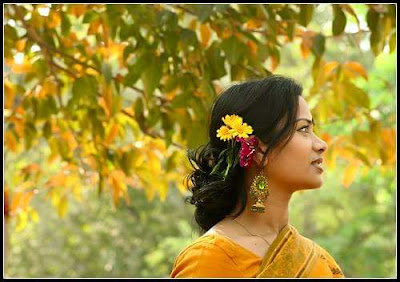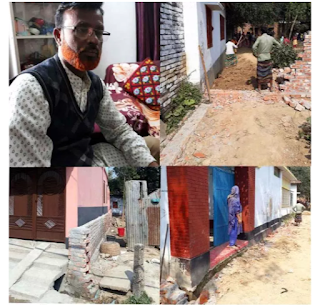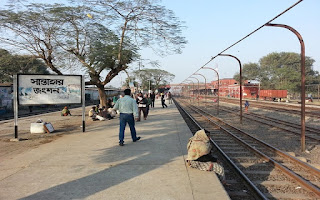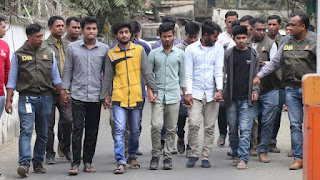KCSI, CIE (27 November 1892 – 23 March 1947)
(Bengali: স্যার আজিজুল হক, also known as Muhammad Azizul Huq or Mohammad Azizul Huque) was a Bengali lawyer, writer and public servant.
He studied at Presidency College and University Law College in Calcutta. He worked to better the condition of Muslim people, primarily in the rural farmlands.
This led him to work with many notable Muslim politicians of the subcontinent, including Sher-e-Bangla A.K. Fazlul Haque, Sir Abdulla Suhrawardy, Sir Salimullah and Muhammad Ali Jinnah.
He remained friends with many throughout his life - Sir Azizul Haque Native name আযিযুল হক Born1892 Shantipur, West Bengal, India. Died 1947 Occupation Advocate, diplomatSpouse(s)Kaniz Khatun He was the speaker of the Bengal Legislative Assembly.
Early life and education
Azizul Haque was born on 27 November 1892 in Shantipur in West Bengal, India. His father was the well-known writer, poet and journalist Md. Mozammel Haque.
He was a talented student and completed his primary education at Santipur Muslim School and passed the "Entrance Examination" in 1907 to enter University.
He received his B.A from the prestigious University of Calcutta with distinction in 1912 and later received the B.L ( Bachelor of Law ) degree from Calcutta University Law College Contribution
He initiated his working life as a practising advocate in Krishnanagar Judges' Court at Nadia in 1915. He experienced enormous success as a lawyer became and quickly became well known for his work.
He was soon promoted to the position of Public Prosecutor for the Nadia district. He received the title "Khan Bahadur" from the British in 1926. He held the post of vice-chairman of Nadia Zilla Board between 1926 and 1934.
He later became chairman of Krishnanagar Municipality in 1933.[] He was appointed as the Education Minister for Bengal in 1934. As an education minister he tried to obliterate illiteracy in Bengal.
It was he who first introduced a bill for free primary education to all. During his tenure, Bengal experienced unprecedented growth in its educational infrastructure.
Under his direction, many new schools were built and school systems were organised in cities and rural areas. He was the former speaker of Legislative Assembly of undivided Bengal.
He was the "Vice-Chancellor" of Calcutta University during the period from 1939 to 1942. He introduced a new Islamic studies curriculum and created the "Islamic History and Culture" department in that university.
He held the post of High Commissioner of India to London in 1942–43. After returning to India, he became a member of the "viceroy's Executive Council." As a cabinet member, he oversaw various aspects of government especially education and distribution of food.
During his time in this seat, he worked alongside well-known viceroys like Lord Linlithgow and Lord Wavell. In 1939, a college was established in his name at Bogra, which is now in Bangladesh.
He was honoured with the distinction of the Doctor of Letters degree by Calcutta University. Haque was given the title of Khan Bahadur by the British Government, appointed a CIE in 1937 knighted in the 1941 New Year Honours List, and appointed a KCSI in the 1946 Birthday Honours List.
However, he subsequently renounced his British honours in protest against the government. Haque died on 23 March 1947 in Calcutta. Sir Azizul Haque, Order of the Indian Empire Certificate.
Major works
Haque's literary works include:
History and Problems of Moslem Education in Bengal (1917)Education and Retrenchment (1924)The Man Behind the Plough (1939)The Sword of the Crescent MoonCultural Contributions of Islam to Indian HistoryA Plea for Separate Electorate in Bengal (1931)
বাংলায় পড়ুন
বাংলায় পড়ুন







